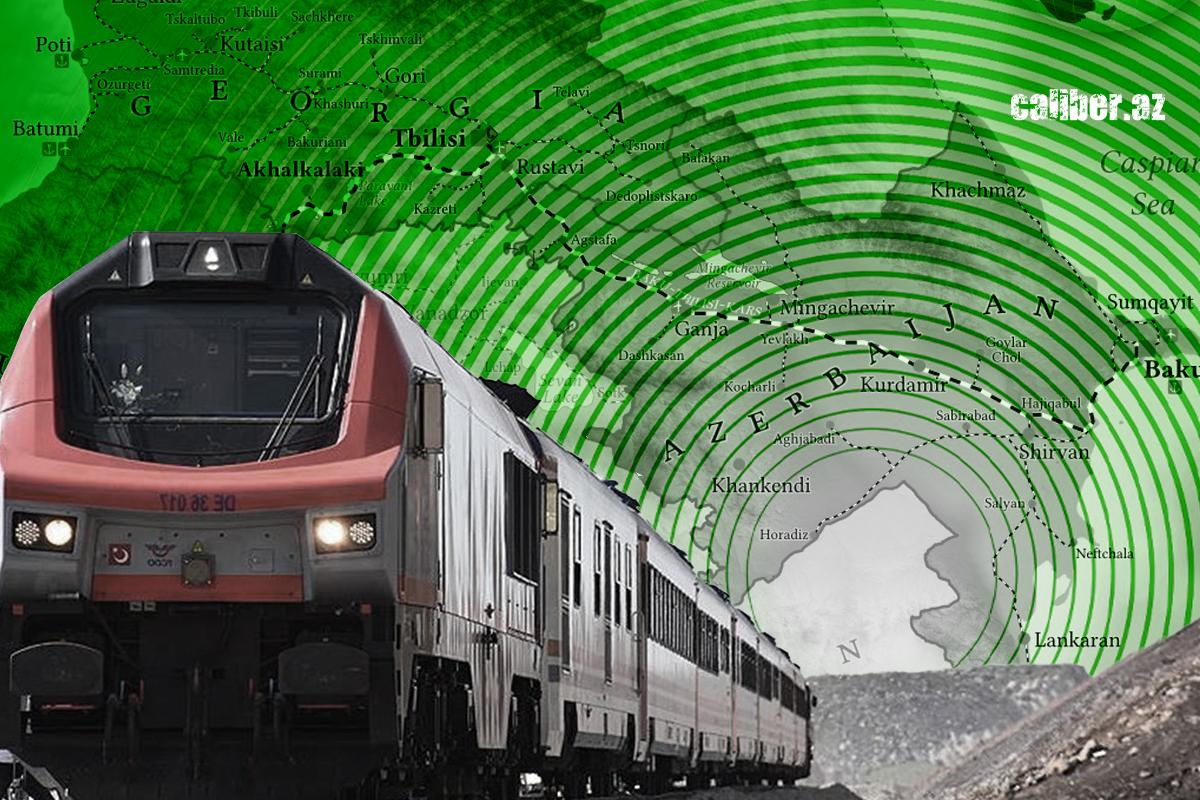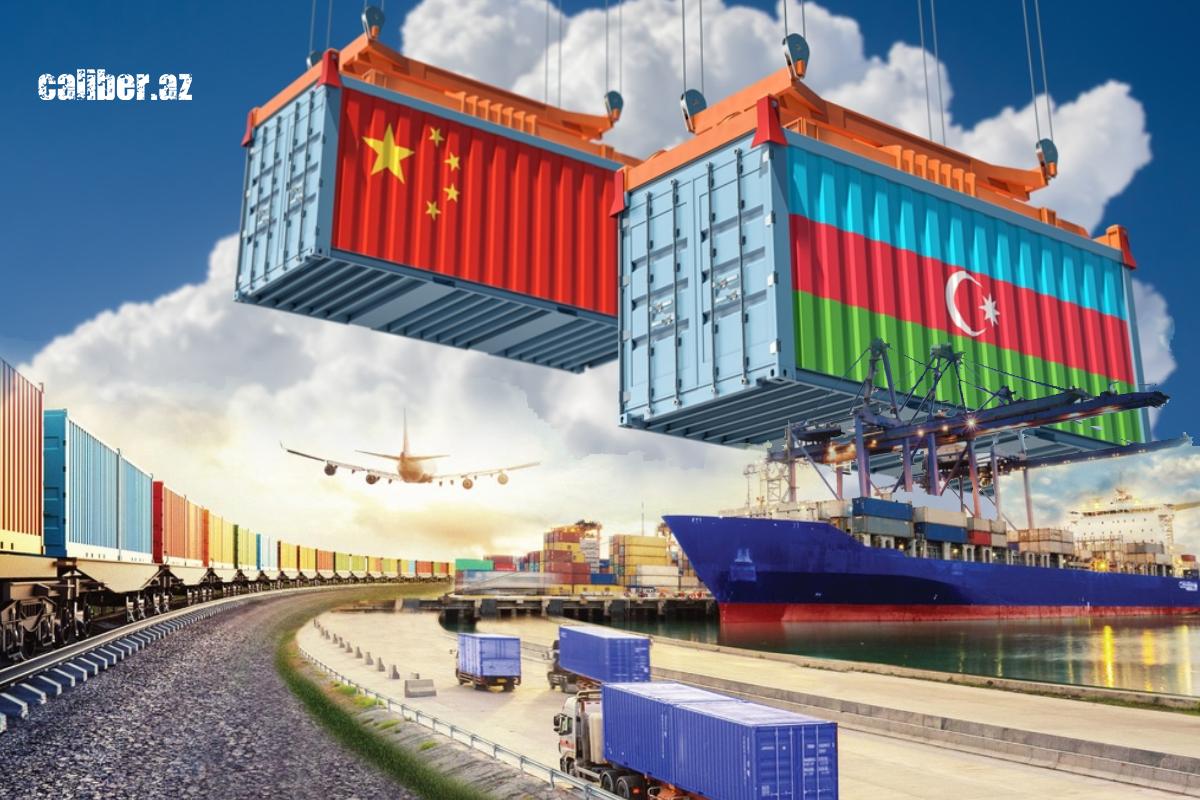Middle Corridor boom: Trans-Caspian fast track to global trade success Redefining East-West logistics
Interest in the Middle Corridor, or the Trans-Caspian route, is rapidly rising due to its shorter delivery times, convenience, and enhanced logistical safety. This is especially crucial amid sanctions on Russia's Northern route and increasing instability in the Middle East, which threatens shipping through the Suez Canal. Azerbaijan, having invested billions into its transport and logistics infrastructure, has emerged as a central hub for the Middle Corridor and has actively attracted cargo carriers over the past three years. The recent "Black Sea-Caspian Logistics Forum 2024: Corridors, Cargoes, Infrastructure" held in Baku reaffirmed the success of these efforts.
In light of negative geopolitical shifts across Eurasia, demand for cargo transhipment via the Middle Corridor has surged. Azerbaijan's location is pivotal, as all major rail and sea transit routes of the ancient Silk Road pass through its territory. Azerbaijan's partners — Central Asian countries, Europe, Georgia, Türkiye, and China — are proposing new initiatives to enhance transit cooperation. These initiatives include several key routes within the Middle Corridor: the EU-backed Europe-Caucasus-Asia (TRACECA) route, China’s Belt and Road Initiative, the joint Lapis Lazuli project with Turkmenistan, and the highly active Trans-Caspian International Transport Route (TITR), which incorporates the recently upgraded Baku-Tbilisi-Kars (BTK) railway.
Key partners of the Trans-Caspian International Transport Route (TITR), Baku and Astana, have been working for several years to modernize the port and railway infrastructure along the route. A key initiative, the Roadmap for the synchronous elimination of "bottlenecks" and development of the Middle Corridor for 2022-2027, is underway. This includes upgrading the sea hub at the port of Aktau and the container terminal in Alat, which will increase container capacity to over 300,000, with a long-term goal of reaching 600,000 units. Additionally, the Baku-Tbilisi-Kars (BTK) railway's capacity has been expanded from 1 to 5 million tonnes of cargo, while the Alat International Trade Port is being upgraded to handle 25 million tonnes, up from 15 million tonnes, with a new fertilizer terminal inaugurated last year.
These efforts have already resulted in a 65% increase in cargo volumes along the Middle Corridor in 2023, nearly reaching 3 million tonnes, and projections suggest this figure could exceed 4.2 million tonnes by the end of 2024.
"In 2025, joint efforts on developing the Middle Corridor will intensify. The key objective is to launch a new phase of corridor expansion by June, incorporating elements of institutional development," said Emil Mammadov, Advisor to the Chairman of Azerbaijan Railways CJSC, during the session on "International Transport Corridors in the Black and Caspian Seas" at the Baku conference. Mammadov emphasized that new facilities, enhanced operational efficiency, and a transparent delivery time policy will be integral to the project. Special focus will also be given to the development of port terminals, which are vital components in the logistics chain.

A crucial aspect in the development of the Middle Corridor is the expansion of its "steel" highways, with the modernized Baku-Tbilisi-Kars (BTK) railway line playing a pivotal role. At the recent Baku conference, the potential of this route was underscored, particularly with the completion of modernization on the Georgian section this spring, boosting its capacity fivefold. Additional upgrades are planned in Türkiye, which will further increase volumes and speed up train movement.
“BTK continues to strengthen its role as a strategic transport hub, serving as a key link between the Caspian Sea ports of Kazakhstan and Turkmenistan and connecting these with Türkiye, Europe, and global markets,” said Natig Jafarov, CEO of logistics company Alliance Multimodal, during the conference.
The modernization of transport and logistics infrastructure, simplification of cross-border procedures, full digitalization of the route, and enhanced capacity have sparked genuine interest, not only from regional countries but also from more distant partners in China and Europe. This was clearly demonstrated by the attendance at the international conference in Baku.
China, a key partner, is especially interested in expanding the Middle Corridor’s capabilities. Since the launch of the first China Railway Express container train in 2019, Chinese multimodal transit has significantly expanded in both the variety of cargo and the range of shipping cities. Since April 2022, China has been dispatching goods trains from Xi'an through Kazakhstan, Azerbaijan, Georgia, Romania, Hungary, Slovakia, and the Czech Republic, ultimately reaching Germany. Container block trains on the Trans-Caspian route now complete the journey in approximately 20-25 days — half the time it takes to transport goods from China and Southeast Asia via sea through the Suez Canal, which averages 40-50 days.
These developments reinforce Baku’s strategic role within China’s Belt and Road Initiative, further solidifying the Azerbaijan-China partnership.

“Today, Azerbaijan Railways and its partners in China are negotiating the potential expansion of railway routes to Europe, offering Chinese freight carriers additional opportunities to access the European market,” stated Emil Mammadov, advisor to the chairman of Azerbaijan Railways CJSC, during the recent conference.
Ukraine is also positioning itself to participate in Middle Corridor freight traffic, according to Yuriy Gusev, Ukraine's ambassador to Azerbaijan. Kyiv is currently preparing to restore ferry services to Georgia. “We hope the Baku conference will serve as an important step in enhancing Ukraine’s logistical ties with the South Caucasus, Türkiye, China, and optimizing transit routes to access the EU market,” Gusev noted.
Georgia shares this optimism, viewing the Middle Corridor as a strong alternative to traditional sea routes that have been in place for years. Irakli Danelia, business development manager for Central Asia and the Caucasus at MAERSK, pointed out that, amid global economic uncertainty, international logistics operators are increasingly turning their attention to the Middle Corridor. This project is aimed at strengthening connectivity to improve the reliability and stability of transport routes to Western Europe.
“The Middle Corridor offers significant advantages to market participants,” Danelia emphasized, “including efficient logistics solutions, integrated services based on the ‘single window’ principle, online container tracking for enhanced reliability and transparency, and the high throughput capacity of the corridor.”
Nuno Cesar Núñez, Deputy Director of NPC Hamburg Port Consulting GmbH, a German consulting firm, echoed similar sentiments about the Middle Corridor's potential. “The Middle Corridor is a crucial alternative for global supply chains disrupted in recent years,” Núñez remarked. “It opens new avenues for transporting goods from East to West, and can significantly enhance trade relations and economic development for the countries along the route.”
In parallel, relations with Czech partners are progressing well. Negotiations with Czech authorities regarding participation in the BTKI Railways joint venture, established in August by Azerbaijan Railways and the Georgian operator Marabda-Kartsakhi Railway, are nearing completion. Additionally, Romania is committed to advancing the Middle Corridor's presence in Europe. “Romania’s national transport operator is fully prepared to support the Middle Corridor’s development,” stated Renata Goja, Commercial Director of Romania’s national rail freight company CFR Marfă S.A. “We have the necessary infrastructure, resources, skilled personnel, and rolling stock to handle cargo coming from and going to Asia and Europe.”








